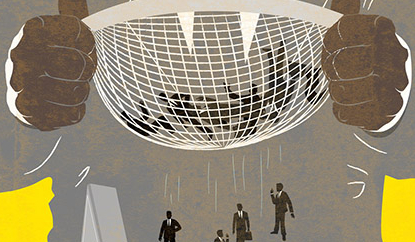什么时候该请病假?
|
Have you ever woken up with a sore throat and blocked nose and wondered if you should take the day off work? Some of us just soldier on, hoping the office environment and banter with work colleagues will perk us up. Others will make a hot drink, return to bed and have a 'duvet day'. But what is the right approach to take? People’s attitude to illness and when to take time off work varies. Reasons for having a sick day range from a light sniffle to feeling at death’s door. And when you have no genuine excuse but just can't face going into work, it might be time to take a sickie. A survey of British workers by YouGov found 15% of workers who admitted making up an illness to get a day off used a migraine as their excuse. But what about a common cold – is having one a genuine enough reason for missing work? This is something Ian Shoesmith explored for the BBC. He looked into "the murky moral maze" that brought together employment law, ethics and public health. He spoke to Rachel Suff, senior policy adviser at the Chartered Institute of Personnel and Development, who said "If you are really not well and your symptoms mean you are not going to be productive, it's better to go off sick. You're also not spreading your germs around the workplace." But Ian also found that catching a cold from someone could help build up your immune system and be good for long-term health. However it can depend on what type of cold it is. Of course, deciding whether to take time off to recuperate from a cold may depend on where you work. Hayley Johnson, an employment lawyer at Slater and Gordon, told the BBC that sometimes members of staff feel obliged to work when they are sick "because they fear the mountain of work will just keep piling up" for when they return. But if an employee is feeling under the weather but well enough to work, a solution could be to work from home. As a cure for a common cold is still a long way off, having this lurgy as an excuse for a day off work is not to be sneezed at! |








